The Bible attributes many different names and titles to Jesus. All of the 200 or so names and titles give us insight into His character and Who He really is. I’m not going to attempt to list them all here but I do want you give you those that I believe are some of the more important ones related to His work on earth on our behalf.
Jesus has so many titles because He fulfills all our needs. Wherever you are in life, whatever you need, He’s got it covered.
Editor's Note:. Some content excerpted from "There's a Title for That" by John UpChurch
Sometimes, we just need to be reminded of who Jesus is:
Colossians 1:17-18 NKJV And He is before all things, and in Him all things consist. And He is the head of the body, the church, who is the beginning, the firstborn from the dead, that in all things He may have the preeminence.
The Word: He pitched His tent with us and put flesh on God’s promises.
John 1:1, 3-5, 14 NKJV In the beginning was the Word, and the Word was with God, and the Word was God. All things were made through Him, and without Him nothing was made that was made. In Him was life, and the life was the light of men. And the light shines in the darkness, and the darkness did not comprehend it. And the Word became flesh and dwelt among us, and we beheld His glory, the glory as of the only begotten of the Father, full of grace and truth.
Son of God: He’s got the whole world in His hands.
Matthew 16:16 NKJV Simon Peter answered and said, “You are the Christ, the Son of the living God.”
Son of Man: He knows our sorrows up close and personal.
Matthew 17:12 NKJV But I say to you that Elijah has come already, and they did not know him but did to him whatever they wished. Likewise the Son of Man is also about to suffer at their hands.”
Son of David: He loved His people, even if they didn’t recognize Him.
Matthew 1:1 NKJV The book of the genealogy of Jesus Christ, the Son of David, the Son of Abraham:
John 1:10-11 NKJV He was in the world, and the world was made through Him, and the world did not know Him. He came to His own, and His own did not receive Him.
Teacher: He tells us exactly what we need, even if it’s not what we want to hear
John 3:2 NKJV This man came to Jesus by night and said to Him, “Rabbi, we know that You are a teacher come from God; for no one can do these signs that You do unless God is with him.”
Prophet: He told us what would and will happen.
Deuteronomy 18:15 NKJV “The Lord your God will raise up for you a Prophet like me from your midst, from your brethren. Him you shall hear,
Matthew 13:57 NKJV So they were offended at Him. But Jesus said to them, “A prophet is not without honor except in his own country and in his own house.”
Provider: He can make a little go a long way
Mark 6:39, 41-44 NKJV Then He commanded them to make them all sit down in groups on the green grass. And when He had taken the five loaves and the two fish, He looked up to heaven, blessed and broke the loaves, and gave them to His disciples to set before them; and the two fish He divided among them all. So they all ate and were filled. And they took up twelve baskets full of fragments and of the fish. Now those who had eaten the loaves were about five thousand men.
Mediator: He’s right in the middle of our struggles and pleading our case.
I Timothy 2:5 NKJV For there is one God and one Mediator between God and men, the Man Christ Jesus,
Hebrews 9:15 NKJV And for this reason He is the Mediator of the new covenant, by means of death, for the redemption of the transgressions under the first covenant, that those who are called may receive the promise of the eternal inheritance.
Suffering Servant: He got busted up for us
Isaiah 53:4-8, 10-11 NKJV Surely He has borne our griefs And carried our sorrows; Yet we esteemed Him stricken, Smitten by God, and afflicted. But He was wounded for our transgressions, He was bruised for our iniquities; The chastisement for our peace was upon Him, And by His stripes we are healed. All we like sheep have gone astray; We have turned, every one, to his own way; And the Lord has laid on Him the iniquity of us all. He was oppressed and He was afflicted, Yet He opened not His mouth; He was led as a lamb to the slaughter, And as a sheep before its shearers is silent, So He opened not His mouth. He was taken from prison and from judgment, And who will declare His generation? For He was cut off from the land of the living; For the transgressions of My people He was stricken. Yet it pleased the Lord to bruise Him; He has put Him to grief. When You make His soul an offering for sin, He shall see His seed, He shall prolong His days, And the pleasure of the Lord shall prosper in His hand. He shall see the labor of His soul, and be satisfied. By His knowledge My righteous Servant shall justify many, For He shall bear their iniquities.
Lamb of God: He put sin in a full-nelson and made death cry uncle
John 1:29 NKJV The next day John saw Jesus coming toward him, and said, “Behold! The Lamb of God who takes away the sin of the world!

Lion of Judah: He can take care of His enemies with just His roar.
Revelation 5:5 NKJV But one of the elders said to me, “Do not weep. Behold, the Lion of the tribe of Judah, the Root of David, has prevailed to open the scroll and to loose its seven seals.”
Counselor: He’s the cure for our addictions and struggles.
Isaiah 9:6 NKJV For unto us a Child is born, Unto us a Son is given; And the government will be upon His shoulder. And His name will be called Wonderful, Counselor, Mighty God, Everlasting Father, Prince of Peace.
Prince of Peace: He signed—in blood—the peace treaty between God and us.
Isaiah 9:6 NKJV For unto us a Child is born, Unto us a Son is given; And the government will be upon His shoulder. And His name will be called Wonderful, Counselor, Mighty God, Everlasting Father, Prince of Peace.
Immanuel: He never gets tired of being with us.
Isaiah 7:14 NKJV Therefore the Lord Himself will give you a sign: Behold, the virgin shall conceive and bear a Son, and shall call His name Immanuel.
King of Kings: He’s got the power.
Revelation 17:14 NKJV These will make war with the Lamb, and the Lamb will overcome them, for He is Lord of Lords and King of kings; and those who are with Him are called, chosen, and faithful.”
The Way: He ain’t got no time for wishy-washy “all roads” arguments; He’s it
John 14:6 NKJV Jesus said to him, “I am the way, the truth, and the life. No one comes to the Father except through Me.
The Truth:
John 14:6 NKJV Jesus said to him, “I am the way, the truth, and the life. No one comes to the Father except through Me.
The Life: He resuscitates hearts that were hardened by sin.
John 20:31 NKJV but these are written that you may believe that Jesus is the Christ, the Son of God, and that believing you may have life in His name.
Good Shepherd: He patiently and lovingly tracks down His runaways.
Luke 15:4 NKJV “What man of you, having a hundred sheep, if he loses one of them, does not leave the ninety-nine in the wilderness, and go after the one which is lost until he finds it?
John 10:11 NKJV “I am the good shepherd. The good shepherd gives His life for the sheep.
True Vine: He nurtures us to fruitfulness.
John 15:4-5 NKJV Abide in Me, and I in you. As the branch cannot bear fruit of itself, unless it abides in the vine, neither can you, unless you abide in Me. “I am the vine, you are the branches. He who abides in Me, and I in him, bears much fruit; for without Me you can do nothing.
Romans 7:4 NKJV Therefore, my brethren, you also have become dead to the law through the body of Christ, that you may be married to another—to Him who was raised from the dead, that we should bear fruit to God.
Friend of Sinners: He offers grace to those stumbling around in darkness
Matthew 11:9 NKJV But what did you go out to see? A prophet? Yes, I say to you, and more than a prophet.
Balm of Gilead: He binds up our wounds by the scars on His back.
Jeremiah 8:22 NKJV Is there no balm in Gilead, Is there no physician there? Why then is there no recovery For the health of the daughter of my people?
Isaiah 53:5 NKJV But He was wounded for our transgressions, He was bruised for our iniquities; The chastisement for our peace was upon Him, And by His stripes we are healed.
I Peter 2:22-24 NKJV “Who committed no sin, Nor was deceit found in His mouth”; who, when He was reviled, did not revile in return; when He suffered, He did not threaten, but committed Himself to Him who judges righteously; who Himself bore our sins in His own body on the tree, that we, having died to sins, might live for righteousness— by whose stripes you were healed.
Giver of the Spirit: He sent the One who makes the journey alongside us and leads us into truth
John 14:15-18 NKJV “If you love Me, keep My commandments. And I will pray the Father, and He will give you another Helper, that He may abide with you forever— the Spirit of truth, whom the world cannot receive, because it neither sees Him nor knows Him; but you know Him, for He dwells with you and will be in you. I will not leave you orphans; I will come to you.
Light of the World: He sends photons to those who’ve been blinded by the god of this age.
Luke 2:32 NKJV A light to bring revelation to the Gentiles, And the glory of Your people Israel.”
Acts 13:47 NKJV For so the Lord has commanded us: ‘I have set you as a light to the Gentiles, That you should be for salvation to the ends of the earth.’ ”
II Corinthians 4:3-5 NKJV But even if our gospel is veiled, it is veiled to those who are perishing, whose minds the god of this age has blinded, who do not believe, lest the light of the gospel of the glory of Christ, who is the image of God, should shine on them. For we do not preach ourselves, but Christ Jesus the Lord, and ourselves your bondservants for Jesus’ sake.
Intercessor: He never stops praying for us.
Isaiah 53:12 NKJV Therefore I will divide Him a portion with the great, And He shall divide the spoil with the strong, Because He poured out His soul unto death, And He was numbered with the transgressors, And He bore the sin of many, And made intercession for the transgressors.
John 17:9, 20-21 NKJV “I pray for them. I do not pray for the world but for those whom You have given Me, for they are Yours. “I do not pray for these alone, but also for those who will believe in Me through their word; that they all may be one, as You, Father, are in Me, and I in You; that they also may be one in Us, that the world may believe that You sent Me.
Great High Priest: He took care of all the Temple work.
Hebrews 7:17, 20-22, 24-25 NKJV For He testifies: “You are a priest forever According to the order of Melchizedek.” And inasmuch as He was not made priest without an oath (for they have become priests without an oath, but He with an oath by Him who said to Him: “The Lord has sworn And will not relent, ‘You are a priest forever According to the order of Melchizedek’ ”), by so much more Jesus has become a surety of a better covenant. But He, because He continues forever, has an unchangeable priesthood. Therefore He is also able to save to the uttermost those who come to God through Him, since He always lives to make intercession for them.
The Bread/Water of Life: He’s our daily nutritional requirement for a spiritually balanced life.
John 6:35 NKJV And Jesus said to them, “I am the bread of life. He who comes to Me shall never hunger, and he who believes in Me shall never thirst.
Revelation 21:6 NKJV And He said to me, “It is done! I am the Alpha and the Omega, the Beginning and the End. I will give of the fountain of the water of life freely to him who thirsts.
Alpha and Omega: He gets the first and last word… always
Revelation 22:13 NKJV I am the Alpha and the Omega, the Beginning and the End, the First and the Last.”
Lord of Glory: He makes angels belt out never-ending praises
Psalms 24:7-10 NKJV Lift up your heads, O you gates! And be lifted up, you everlasting doors! And the King of glory shall come in. Who is this King of glory? The Lord strong and mighty, The Lord mighty in battle. Lift up your heads, O you gates! Lift up, you everlasting doors! And the King of glory shall come in. Who is this King of glory? The Lord of hosts, He is the King of glory. Selah
Psalms 103:20 NKJV Bless the Lord , you His angels, Who excel in strength, who do His word, Heeding the voice of His word.
Firstborn among the Dead: He paved the path that leads to His place
Colossians 1:18 NKJV And He is the head of the body, the church, who is the beginning, the firstborn from the dead, that in all things He may have the preeminence.
God!!
John 1:1 NKJV In the beginning was the Word, and the Word was with God, and the Word was God.
All these names and titles describe the person who also claimed that he was the only way to heaven and eternal life.
John 14:6 NKJV Jesus said to him, “I am the way, the truth, and the life. No one comes to the Father except through Me.


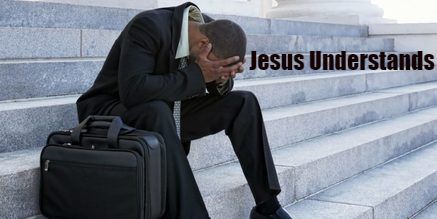
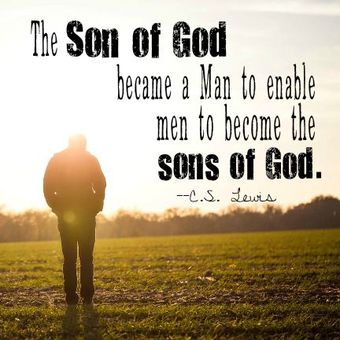








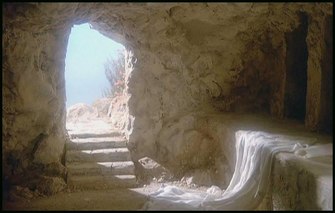


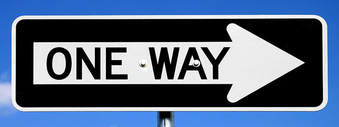
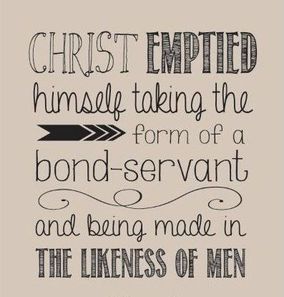



 RSS Feed
RSS Feed